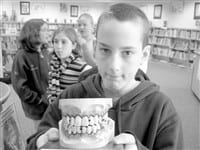Good Sleep Protects Body from Disease
It’s getting late, yet there are still things you need and want to do. Far too often, we see sleep as an option. Scrambling to meet the countless demands of the day, many of us cut back on sleep. But sufficient sleep is not a luxury; it is a necessity and should be thought of as a vital part of good health. The quality of our sleep directly affects the quality of our waking life, including mental sharpness, productivity, emotional balance, creativity, physical vitality, safety, and even weight.
Sleep allows the body to actively recharge itself and prepare for the next day. When we rest, our brain is forming the pathways necessary for learning and creating memories and new insights. Without enough sleep, we might find that we can’t focus, pay attention, or respond quickly.
According to the Centers for Disease Control & Prevention, insufficient sleep is associated with a number of chronic conditions such as diabetes, cardiovascular disease, obesity, and depression. More than 25{06cf2b9696b159f874511d23dbc893eb1ac83014175ed30550cfff22781411e5} of the U.S. population report occasionally not getting enough sleep, while nearly 10{06cf2b9696b159f874511d23dbc893eb1ac83014175ed30550cfff22781411e5} experience chronic insomnia.
We have all experienced trouble sleeping at one time or another. This is normal and usually temporary, and often due to stress or other outside factors. But if sleep problems become a regular occurrence and interfere with your daily life, you may be suffering from a sleep disorder. Talk to your primary-care provider if you are having trouble sleeping on more than three nights a week for one month. He or she can help determine whether your sleep issues are caused by some underlying health problem, and can help with a treatment plan.
Although sleep disorders are treatable, they often go unrecognized, undiagnosed, and untreated because people don’t realize that they have a sleep disorder or don’t know that there are solutions available to them. Your primary-care provider may ask you to see a sleep specialist if he or she thinks you may have a sleeping disorder. A sleep specialist is an expert in assessing and treating sleep disorders, and brings hope to those suffering from insufficient sleep.
Signs of a sleep disorder could include difficulty waking up in the morning and/or waking up too early in the morning; difficulty concentrating; a problem with falling asleep at work; feelings of depression, anxiety, moodiness, or general irritability; a creepy, crawling sensation experienced in the legs at night; snoring on a regular basis; or waking up often throughout the night. Although there are more than 80 distinct sleep disorders, there are a few that are more frequently diagnosed on a regular basis. They include:
• Insomnia, which involves difficulties falling asleep, staying asleep, or both. Some of the common symptoms from lack of sleep include heavy eyelids, watery eyes, excessive yawning, and adverse effects on memory and concentration.
• Sleep apnea, a disorder in which a person stops breathing for brief periods (10 seconds or more) during sleep. The most common form of sleep apnea, called obstructive sleep apnea, occurs when muscles in the back of the throat relax during sleep and tissue blocks the airway.
• Restless legs syndrome, a sleep disorder that causes an almost irresistible urge to move your legs (or arms). The urge to move occurs when you’re resting or lying down and is usually due to uncomfortable, tingly, aching, or creeping sensations.
• Narcolepsy, which can cause a person to fall asleep suddenly, even while working, driving, or eating. A person with narcolepsy may find it impossible to stay awake the entire day or may feel sleepy even after a good night’s sleep or a long nap.
If you feel you might have any of these conditions, sleep studies, or polysomnograms (PSG), are tests used to diagnosis sleep disorders and to determine what is causing the problem. They are generally done during the night so that normal sleep patterns can be recorded; day studies may be done to accommodate night-shift workers. Although many people wonder if they will actually be able to fall asleep in the center, the vast majority of patients have no trouble at all. Baystate Mary Lane Hospital offers an advanced and comprehensive sleep program providing the very latest testing and diagnosis for all types of sleep disorders.
It is clear how critical sound sleep is to your health and well-being. Sleeping problems can occur in people of all ages, from children to senior citizens. If you are not sleeping well, see your primary-care provider and a sleep specialist. Once diagnosed, most sleep disorders can be corrected. –
Dr. Robert Ajello is medical director of the Baystate Regional Sleep Program at Baystate Mary Lane Hospital.


